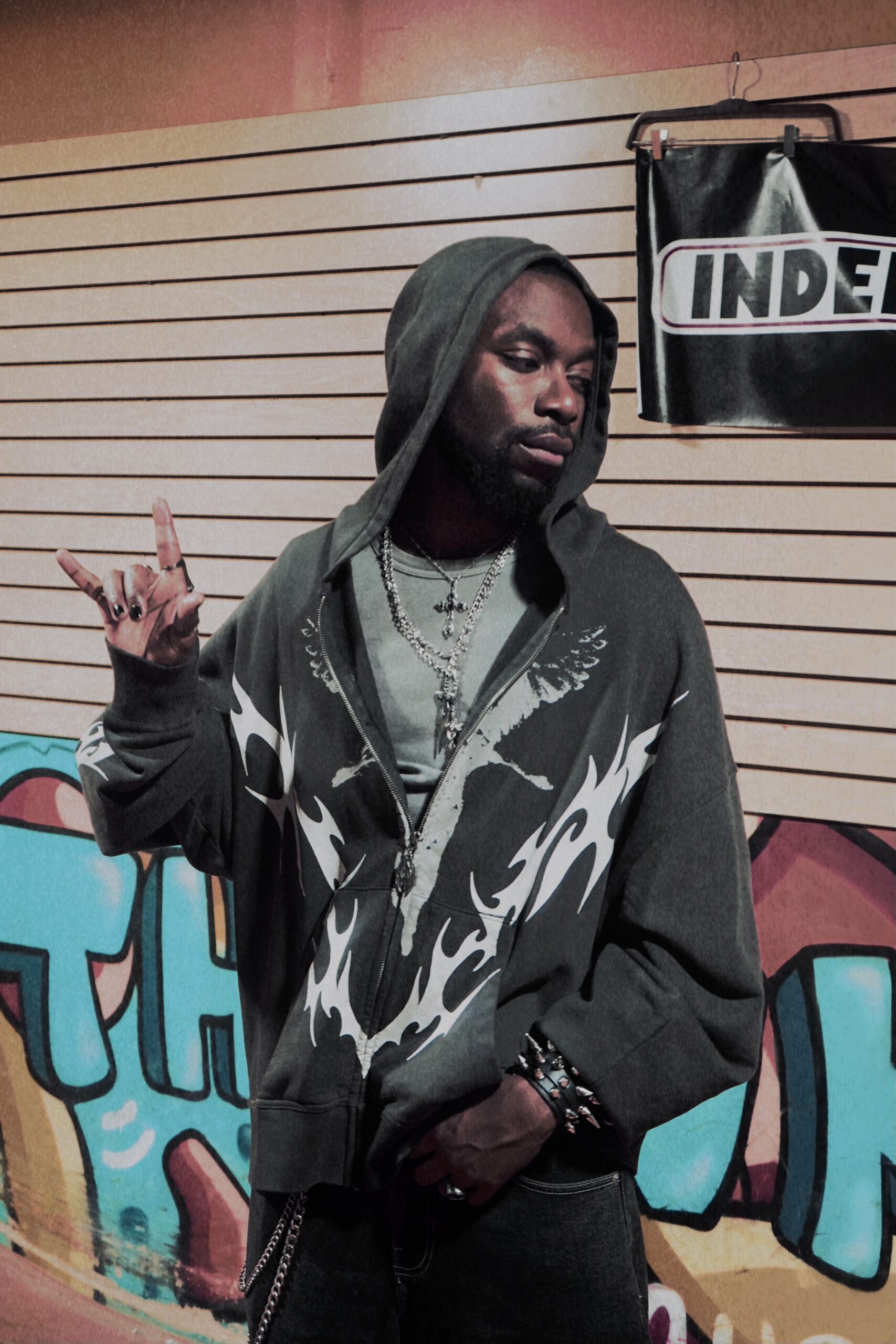Bomi Anifowose
Obongjayar’s voice doesn’t sing as much as it summons. Somewhere between a sermon and a seance, his vocal cords flex like the stretched skin of a talking drum,sharp, elastic, full of something more ancient than grief.
On Paradise Now, his sophomore album, the Nigerian-born, London-based artist sounds both exiled from Eden and deeply intimate with the dust it was formed from. The record isn’t just a follow-up to 2022’s Some Nights I Dream of Doors—it’s a rebirth. An exorcism. A grand, genre-scrambling plea for transcendence in a world that insists on dragging you back down.
Obongjayar has always resisted tidy classification. He emerged from the post-Skepta wave of grime-adjacent experimentalists but quickly carved a lane of his own—part Afrobeat futurist, part soul mystic.
On the album, he intensifies that refusal of category. The project plays like a passport without a border by moving seamlessly from the sharp snap of alt-R&B to the percussive clatter of Afro-funk, to moments that feel like political theatre staged in a dream.
Take the opener, It’s Time—an eerie, minimalist invitation into Obongjayar’s psyche. His voice, soaked in delay and cracked around the edges, feels like it’s echoing from a cliffside cathedral. It sets the tone for an album obsessed with urgency: the urgency of escape, of becoming, of confronting.
That existential fire crackles hardest on Talk Olympics, where British rapper Little Simz joins him in what could be the most soulful duet about ego death this side of Kendrick and George Clinton.
The beat is a syncopated jungle of snares and synths that feels like it’s fighting itself. But instead of chaos, the two artists dance around each other with grace, trading verses like iron sharpening iron. It’s part love song, part revolution anthem, part spiritual cage match.
Elsewhere, Holy Mountain blends Yoruba cosmology with biblical imagery, as Obongjayar asks, “Where does my power rest? / Is it in my mouth or chest?” It’s a question that reverberates throughout the album. Power, here, is not brute force. It’s vulnerability weaponized. It’s melody used like protest.
In Sweet Danger, he wraps self-doubt in falsetto, sounding like a man making peace with his own emotional instability. The production is handled by the likes of Kwes Darko, Yeti Beats, and Beach Noise—never gets in the way. Instead, it bends around him, warping to match the tremble in his voice.
Even at its softest, Paradise Now resists serenity. Moon Eyes and Prayer play like lullabies for the disillusioned… soothing, yes, but not quite restful. On Born in This Body, he leans into the politics of embodiment with an almost punkish snarl. It’s a rallying cry against erasure, a chest-beating reminder that identity is not just heritage, but invention.
Obongjayar’s genius lies not just in how he sounds, but what he’s willing to sound like. At times he croons like Fela on a lover’s comedown; at others he snarls like a griot left out in the cold. In an era obsessed with algorithm-friendly gloss, he insists on the jagged edges.
On songs like Just My Luck and Strong Bone, he dodges the clean resolution modern pop often demands. Instead, he gifts us tension, unresolved chords, abrupt silences, lyrical open wounds.
And yet, Paradise Now is not a hopeless album. If anything, it’s a deeply spiritual one, though its spirituality is allergic to neat answers. Obongjayar doesn’t preach so much as he searches. For home. For healing. For a paradise that isn’t some post-life hallucination, but a bruised, imperfect now. The title, far from ironic, feels like a challenge. What if the promised land isn’t in the afterlife, but hidden in the very chaos we’re trying to escape?
Obongjayar may never be a mainstream darling—and that’s the point. Paradise Now doesn’t ask to be understood; it demands to be felt. It’s an album that hums in your bones long after it ends, daring you to listen not just with your ears, but with your spirit.
In a world drowning in excess, Paradise Now is a rare offering: something raw, soulful, and wholly uncompromising. Not a paradise built for comfort, but one born of confrontation. And in that reckoning, Obongjayar might just be crafting a new kind of gospel.
Album Ratings: 8.5/10




